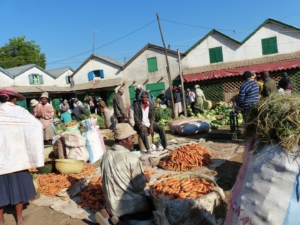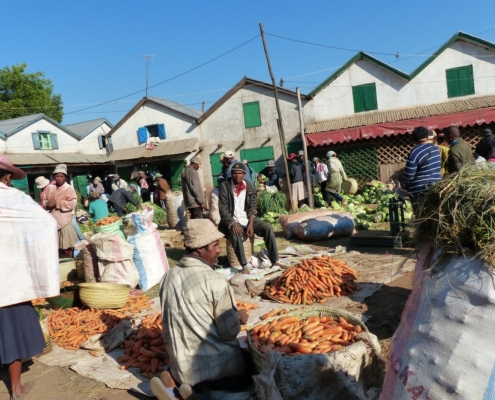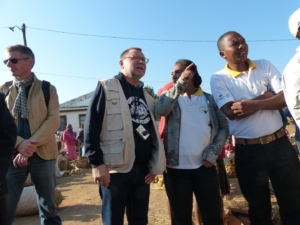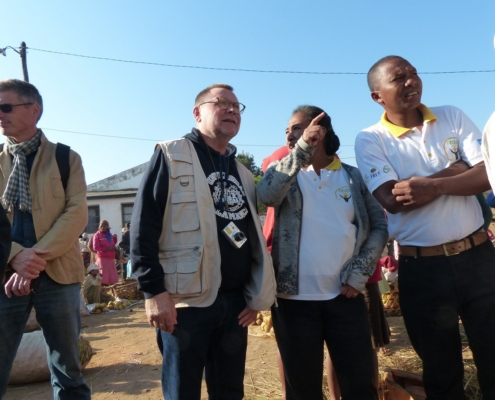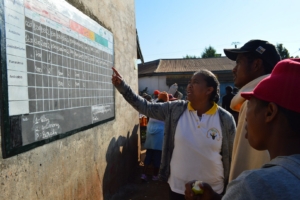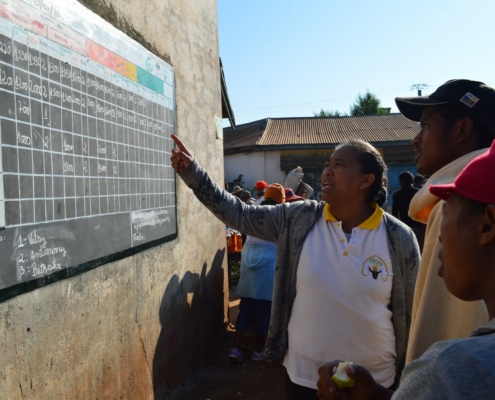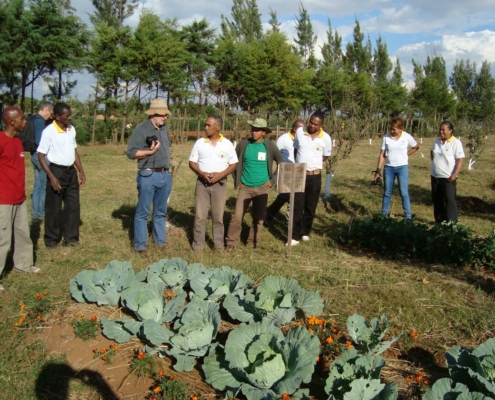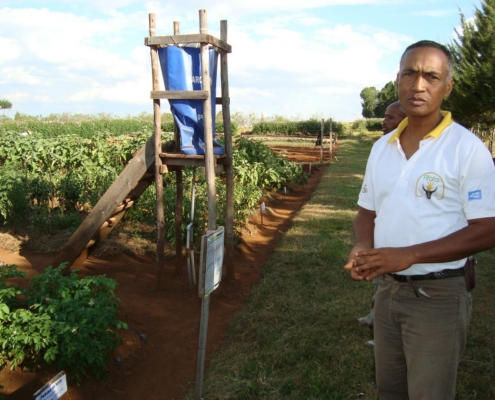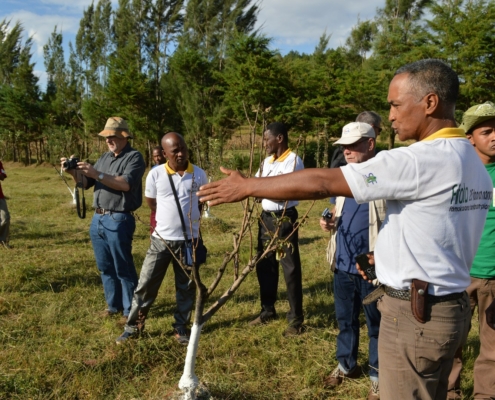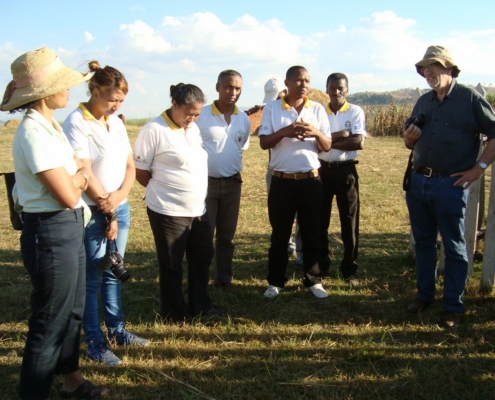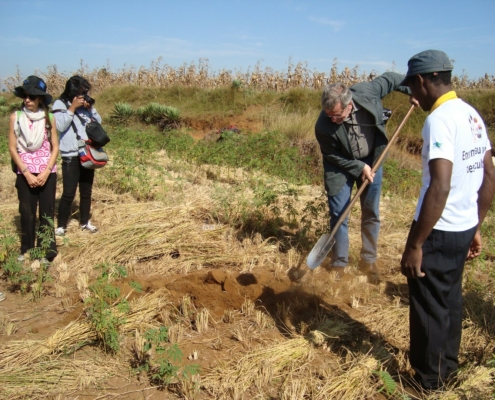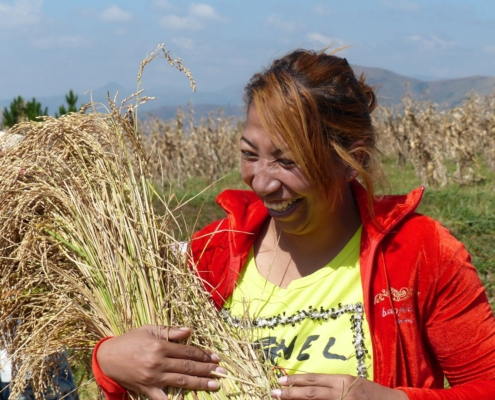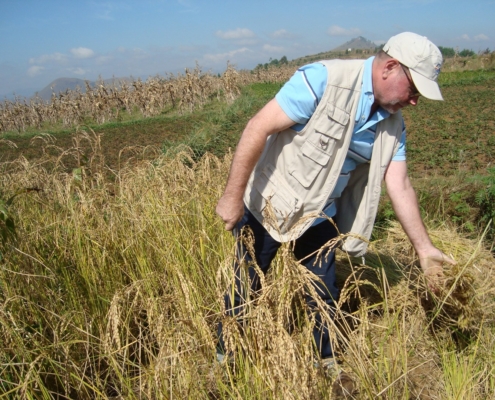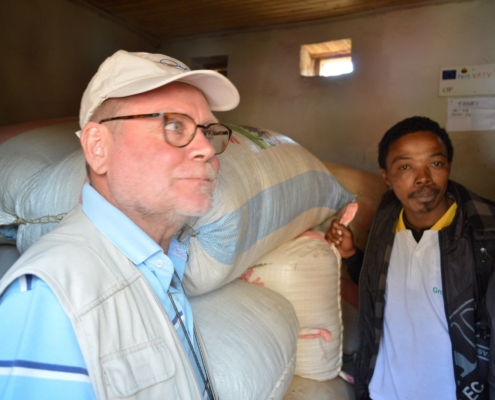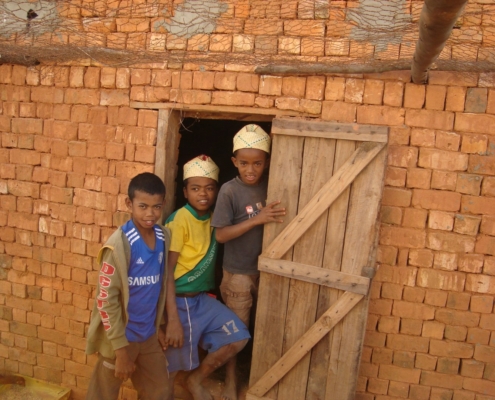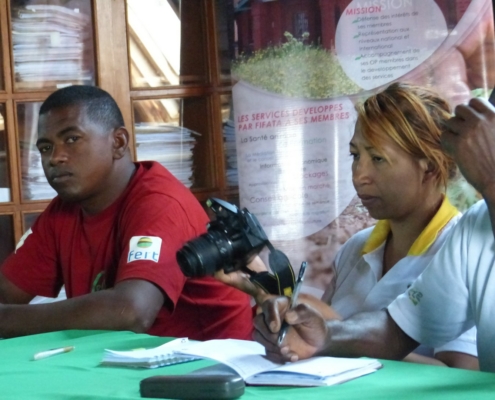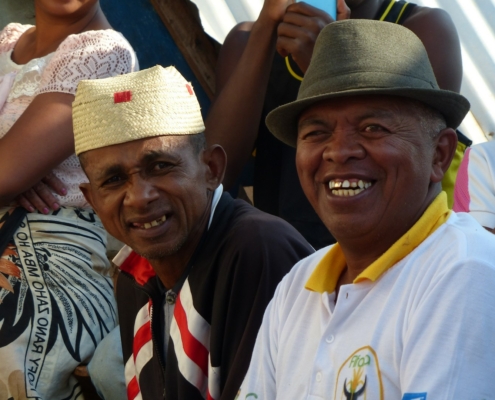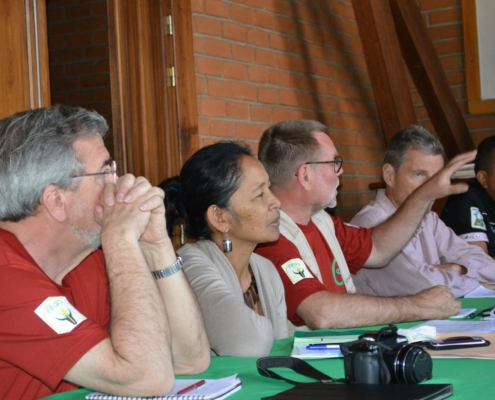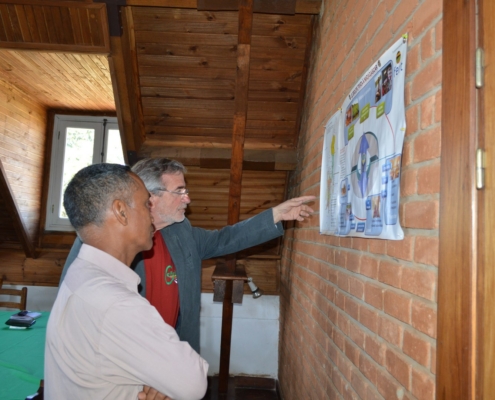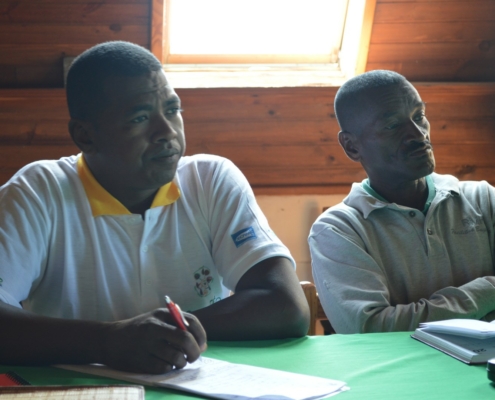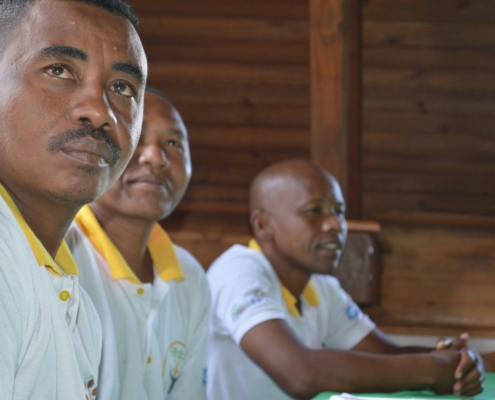From April 30 to May 8, 2016, Jean-François Isambert and Paul-Henri Doublier, respectively Secretary General and Director of AGPB – and also a director and member of Fert – traveled to Madagascar for a first mission. The opportunity for these two professionals responsible, meet the elect of Fifata and discuss the services offered by this national organization of producers Fert partner for 27 years. A journey of discovery and reflection.
If Jean-François Isambert had the opportunity to take part in the festivities of the 25 years of Fifata in 2014, this exchange trip was for both business leaders the opportunity to truly take the time to discover the country and the services offered by organizations Fifata group (Fifata, Ceffel, Fekama, Cecam, Cape Malagasy …) to their members.
Market Betafo earlier this week, the two men, accompanied by a delegation of Fifata administrators and technicians, were able to discover the organization of the market and economic information department of vegetables – Siel – issued by the Ceffel . “It is important to understand the role of each market, including the role of the state,” explained Jean-François Isambert following this visit. At the center of Ceffel then they could appreciate this applied research serving the producers but also the role of the agricultural representative, including by trying to Kilalaom pitantanana – literally “game management” – educational game for decision support, designed for family farmers. A carrier designed and built by Cap Malagasy (in partnership with Fert), young structure specializing in agricultural consultancy in Madagascar.
Moreover, it was, despite the short time of this first mission, exchange between agricultural elected on the professional commitment. The minibus ride to the area where lies Amoron’i Mania President Fifata Roland Rakotovao, enabled the discovery of terraced fields, features highlands, but also lively discussions among farmers. An opportunity to truly mingle to better understand and exchange. Talking about the history of French grain growers organizations, but also about the history of Fifata younger group. “It is important to live this historical ground to unite the group in time and prevent its disintegration,” explained the two elected, engaged both in the specialized association of wheat producers, but also in other grain growers organizations like Arvalis, Unigrains, Passion Cereals…
President Fifata is a citrus producer, who was able to visit with pride its operations and talk about her professional commitment: reconciling farming profession and family life, ensure representation of Fifata in meetings and forums, make very often travel to Antananarivo or Antsirabe with transport often long and complicated. A veritable priesthood for this father forties, president of Fifata since December 2012.
On the road to Amoron’i Mania, the encounter with a young emerging from the five agricultural colleges Fekama Federation allowed the two French officials finger touch the lives of students at the end of their journey three years in college but also to better understand the succession issue training, project nurtured longstanding Fifata; an ambition that saw the creation of the first two colleges in 2003. Both elected AGPB have this opportunity to show their own learning but also for Paul-Henri Doublier, talking about his role as Chairman of the high school agricultural Nermont in Chateaudun (29).
Mobilized for the entire week of meetings and visits, elected Fifata and their guests have been able to close the living room by a brainstorming session on the role of leader farmer: “We could see how the formation of peasant leaders (FLP) is relevant, evidenced in both French choir. People who followed show an open mind, an adaptability and an ability to work together. “
Another opportunity to debate among peers about the posture of a leader who defends the interests of the thousands of farmers he represents. “Trade union action is a struggle”, said Paul-Henri Doublier and Jean-François Isambert. “We have to unite around a struggle, like the training of young people, because it is difficult to lead several struggles at once. In trade union action, it is necessary to show what we have and what we do meets the interest of the other”. A balance to build and preserve.

